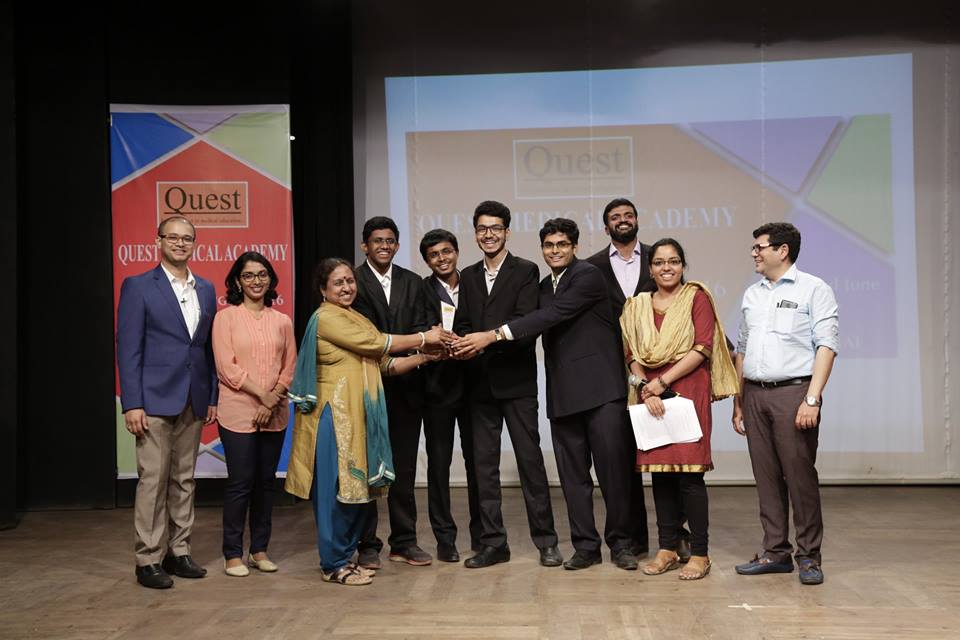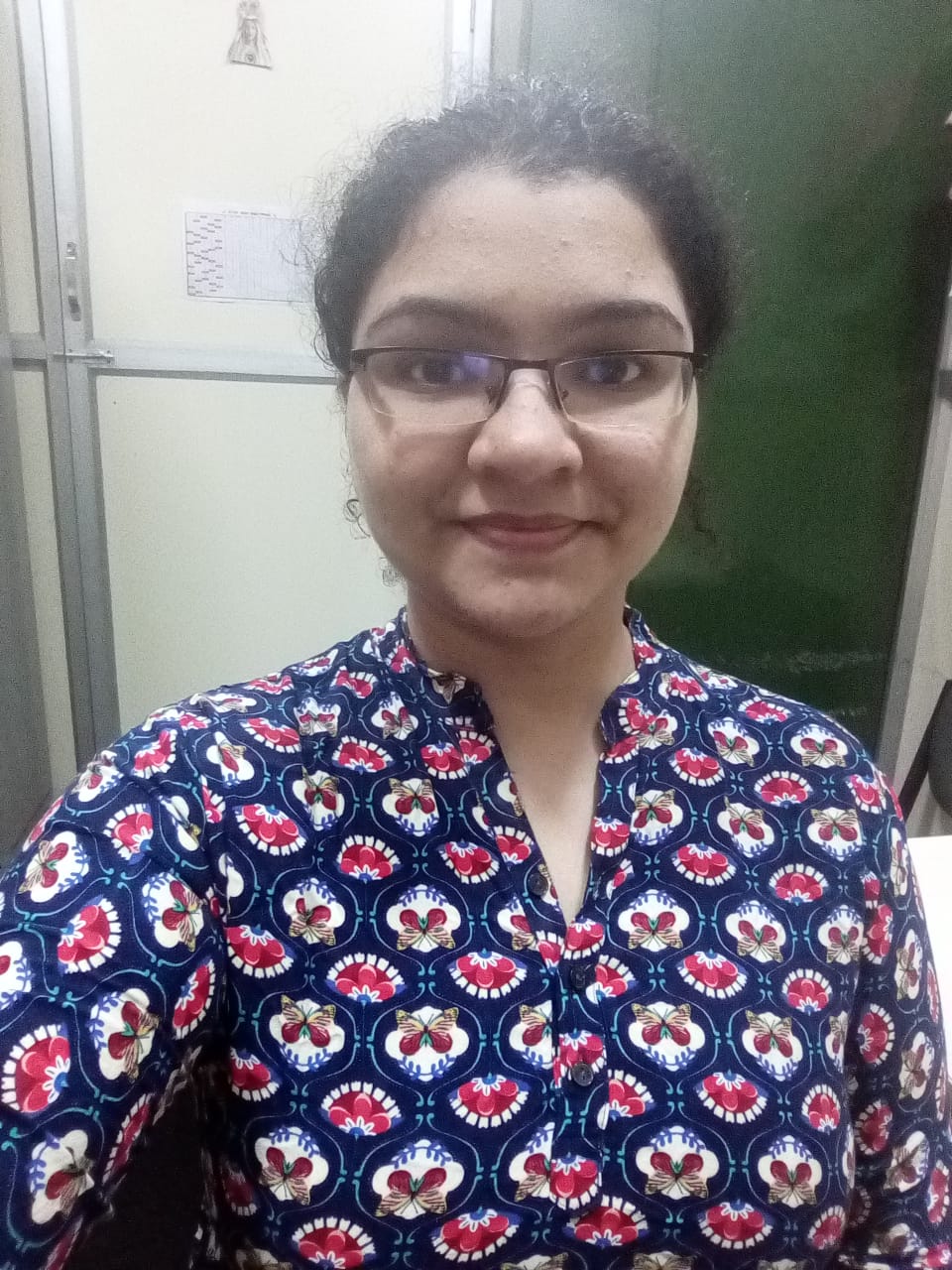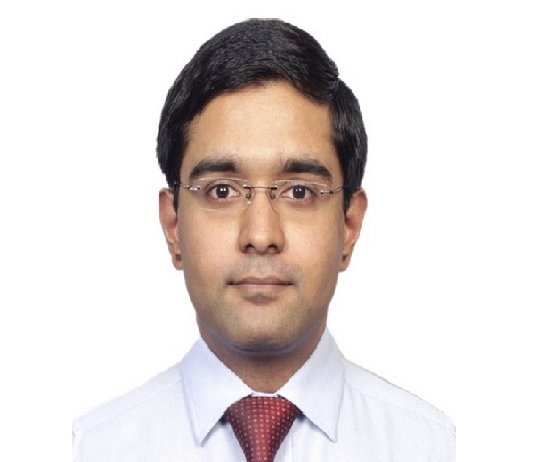This post is contributed by Meet Jain and his team mates. This team (led by Kunal Marathe) won the first prize for their presentation at Quest Unplugged – an event conducted by Quest Medical – the brainchild of Dr Sushant Shinde, in Mumbai. The full team consisted of Kunal Marathe, Meet Jain, Tanmay Londhe and Ujjwal Sharnagat
———————————————————-
And the 1st prize goes to… “Stents! Stents! Stents!” shouted the crowd, much to our surprise. “Oh that one is unanimous! It’s the Stents group!”, announced one of our judges, Dr. Priya Tiwari. Our hearts stopped, quite ironic – considering the topic we spoke on.
Quest Unplugged is one of those rare events, where in, you go beyond the UG syllabus, and just explore. Explore what really goes on beyond our books. Explore the vast amounts of data from research trials on the basis of which treatment protocols are made. And no, that’s not it! The ultimate aim is to interpret all this data and put it all in a way so as to make our colleagues understand. You could think of it as trying to condense three months of studying trials into merely 15 minutes!
I would like to share what QMed’s contribution in this event was. I like to call the experience – “The Literature Search Fiasco”.
Once the topics were allotted to each team, we found ourselves with “Drug Eluting Stents” and were asked to do a literature search, following which, we would be discussing it with Dr. Sushant
And with this, we were lost. Completely lost in the millions of articles on PubMed. None of us had the slightest idea on how to go about searching for our topic. All we knew was that it had to be done on PubMed. All of us living under the peaceful illusion that a simple search of Drug Eluting Stents on PubMed would give us all our answers.
None of us was prepared for what was about to hit us like a boulder right in our faces. A massive 12000 records!!
That’s the number of articles we got using our “simple search” – a real wake up call. That’s it. We were ready to give up. No way we were going to read 12k articles, most of them which were irrelevant. Within a couple of days of aimlessly going through pubmed articles, we realised we weren’t getting anywhere at all.
Our saviour from the monster called Literature search! Our Shaktimaan to the Kilvish, Our Jay-Viru to the Gabbar, Our Mr. India to the Mogambo.. Okay I’ll stop.. 😛
Fortunately for us, that is when a lecture by Mrs. Vasumathi Sriganesh from QMed, was organized. Now that I think about the lecture, every single technique told by ma’am during the lecture came in handy! To give you an example, when we searched for “drug eluting stent [MAJOR]”, we were down to 6000 articles. Still too much.
On selecting studies on Humans only and publications in the last 5 years, we were down to 3k! 3k huge articles. The number may seem less as compared to the earlier 12k, but this was still way out of reach for the 4 of us to analyze.
Here is when another one of the techniques made way for us. Simply by keeping the current filter of [MAJOR] and adding another [ti] to it, i.e. drug eluting stent [MAJOR] AND drug eluting stent [ti], we were now down to 193 articles!
This whole literature search fiasco went on for 2 months! Even a day before our final presentation, we came across a new trial!
We went through still more “trials” (pun intended) with Dr Sushant Shinde each time we met him to discuss the topic – as he pulled us up on our numbers (statistics) and our presentation methodologies. But after hitting the proverbial rock bottom, with every passing discussion, we just had to move upwards. And finally we got his verdict – ‘You guys have gone way past the level that was expected. This is the level of a PG presentation!!!’
The Moment of Truth
The Q&A session, with the judges, where we managed to quote the FAME 2 trial and CAPRIE trial in its entirety was solely because we came across those in the first place!
One thing still astonishes me. 12k to 193 articles! That is the power of searching PubMed with the right tools! Vasumathi Sriganesh ma’am – thank you so much for showing us how to effectively find what we were looking for.
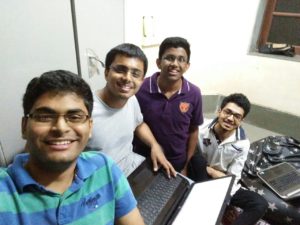
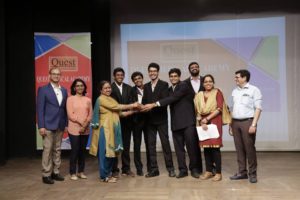
Notes from QMed:
1. The team answered every question that the judges asked, quoting a trial that they had read up. Hats off!
2. Caution- adding drug eluting stent[ti] to narrow down search results is not recommended normally. But for the purpose of this event, it was the best thing that the students could do. They had to talk about the topic, and needed a reasonable number of results. We are glad that they learned the trick for the purpose!


